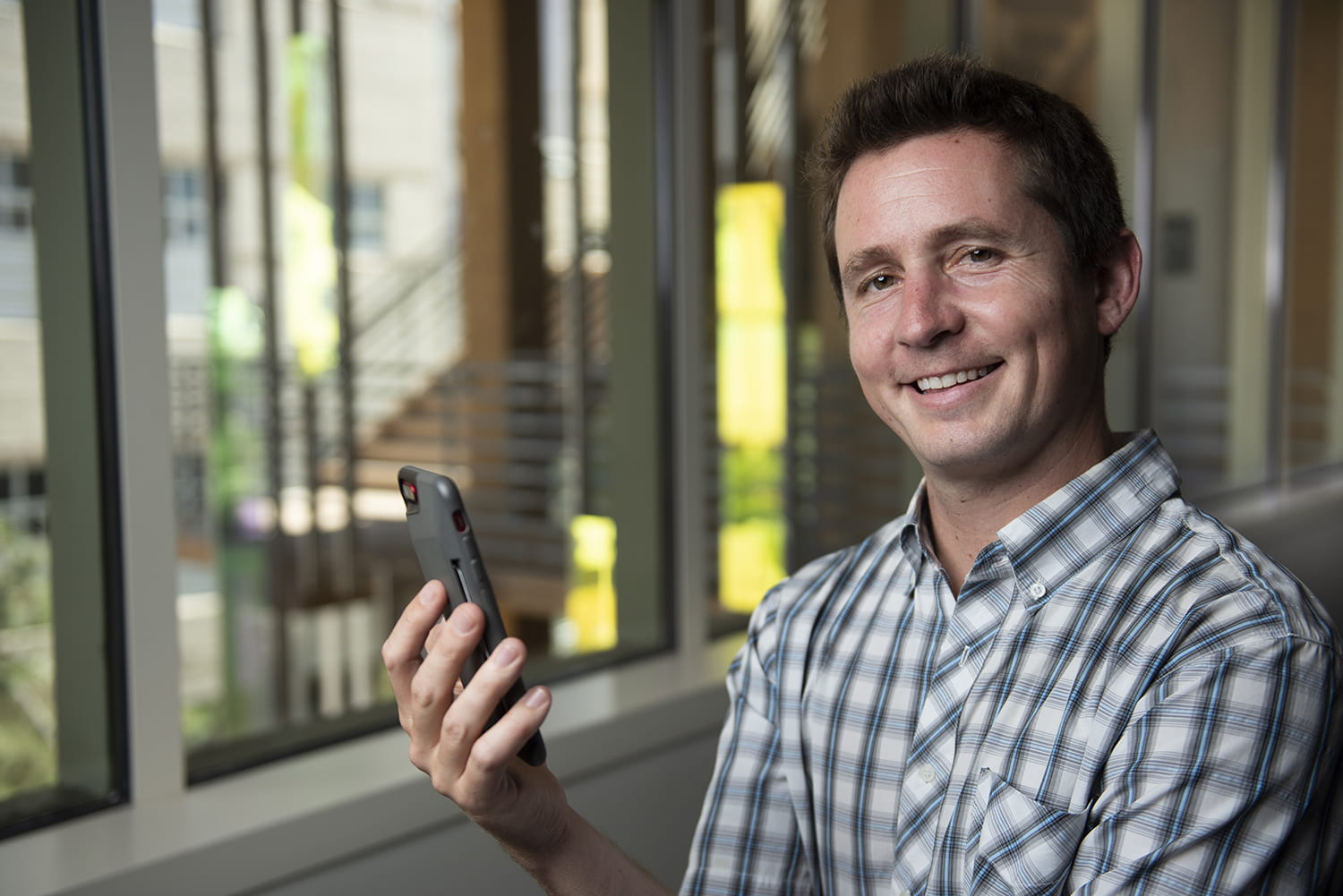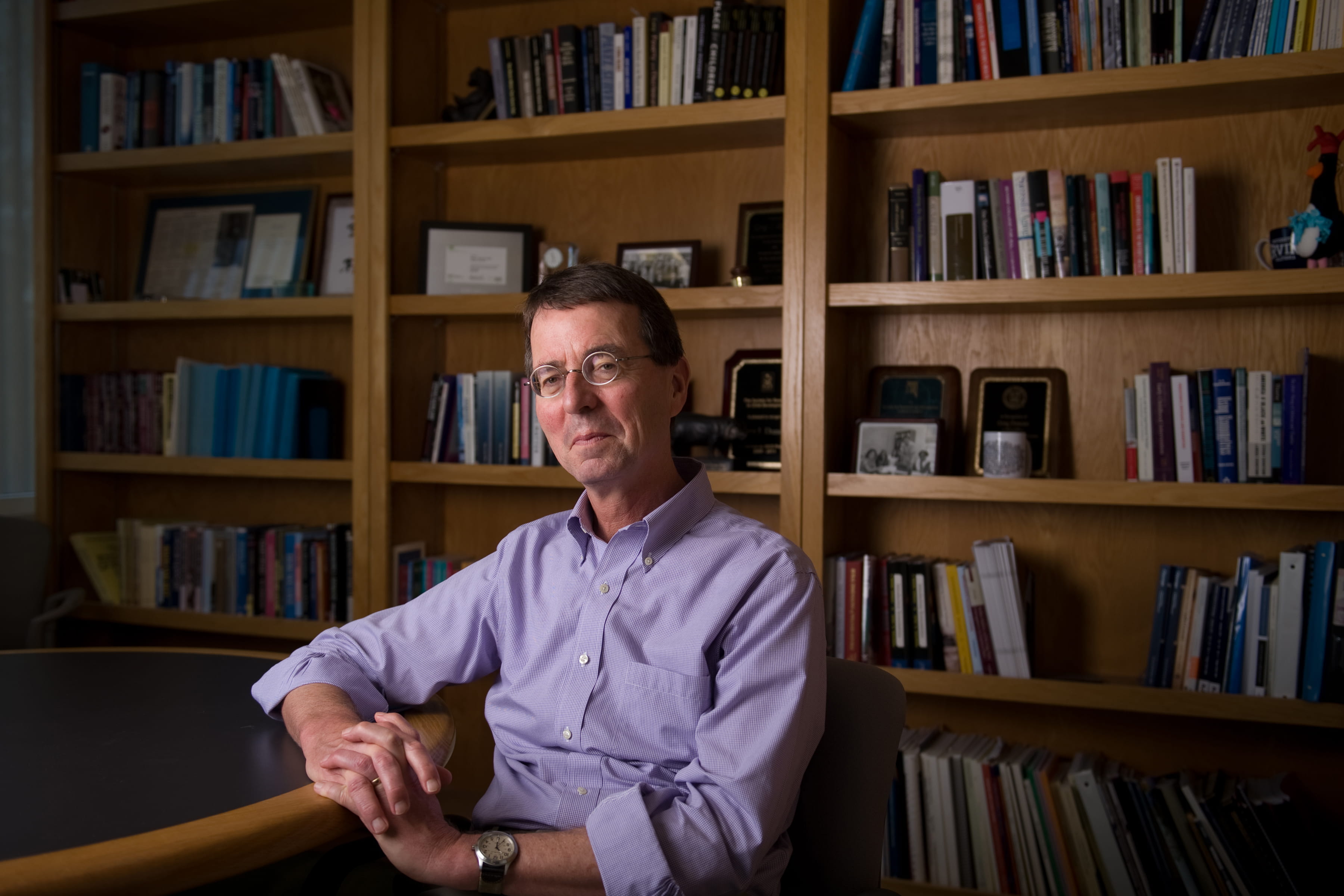Self-care via cellphones
UCI postdoctoral scholar explores positive potential of mobile health apps

During times of stress, we may feel that cellphones only add to our obligations, as we receive a never-ending flood of notifications, news alerts, emails and messages begging for our time and attention. Unsurprisingly, numerous psychological studies have focused on the negative aspects of being over-engaged with technology.
Such research, however, may not be painting a complete picture. Some mobile distractions are good, claims John Hunter, a UCI postdoctoral scholar who earned a Ph.D. here in psychological science last year. He has unraveled how smartphone interaction and mobile health applications can reduce stress, alleviate health disparities and boost positive emotion.
One of Hunter’s most striking findings is that mHealth apps, as they’re called, allow users to obtain the benefits of psychological interventions such as biofeedback therapy without having to spend months with a practitioner. Heart rate variability biofeedback training is a technique by which people can learn to control physiological fight or flight responses, such as a rapid heart rate. When individuals slow their breathing, for example, their heart rate synchronizes with their breaths and their physiological stress is reduced.
Picture this: “An app displays a nature scene on your phone, along with instructions to take deep breaths,” Hunter says. “As you become more calm, the image becomes more elaborate and beautiful and you’re encouraged to continue to breathe deeply and relax, with positive confirmation and guidance on how to focus on trying to relax.”
“One good way to recover from stress – be it an acute situation, a specific issue or all the time – is ‘structured distraction,’” he notes. And mHealth apps offer just that, along with other evidence-based strategies for health improvement and stress reduction, such as behavioral therapy, mindfulness meditation and cognitive restructuring.
With features such as sensors, graphs, games and rewards, they also motivate users and let them track their progress. In addition, mHealth apps can customize their “treatment” to best manage a person’s particular illness or condition, whether it’s pain, stress, anxiety, depression or diabetes. Most importantly, they’re convenient and can provide a positive experience for everyone, including people who are uninsured, low-income or even homeless.
A big takeaway is that whether cellphone use is helpful or destructive comes down to context. Says Hunter: “When using your phone in a potentially positive environment, it might foster a negative experience because it distracts you from people and your surroundings; you’re not engaged. In a potentially negative environment, or a stressful context, that same phone distraction can be positive.”
His goal, therefore, is to analyze these beneficial situations and determine which mHealth apps are actually effective. The vast majority have no proof of this, Hunter says. That’s why he’s researching how these apps can have a lasting impact in real-world contexts, such as hospitals and workplaces.
Hunter is also working with a transdisciplinary UCI team to develop and test a web-based intervention called Pain Buddy that teaches pain relief techniques to children undergoing cancer treatment. Additionally, he’s leading a branch of a large-scale project examining whether a meditation app can help reduce work-related stress for thousands of employees in the University of California system.
In the future, Hunter plans to dive into the implications of cellphone use in various parts of the world. Inspired by his time volunteering with the Peace Corps in the developing islands of Micronesia, he hopes to explore how digital technology can positively transform the lives of impoverished and underserved populations. His overriding question: “Can smartphones be leveraged to build sociocultural bridges, deliver critical services and improve the quality of life for disadvantaged individuals domestically and abroad?”
“Although it’s important to recognize the deleterious effects of these devices on our lives,” Hunter says, “it may be even more critical to recognize the positive potential of smartphones and begin to develop and use technology in ways that augment well-being.”


